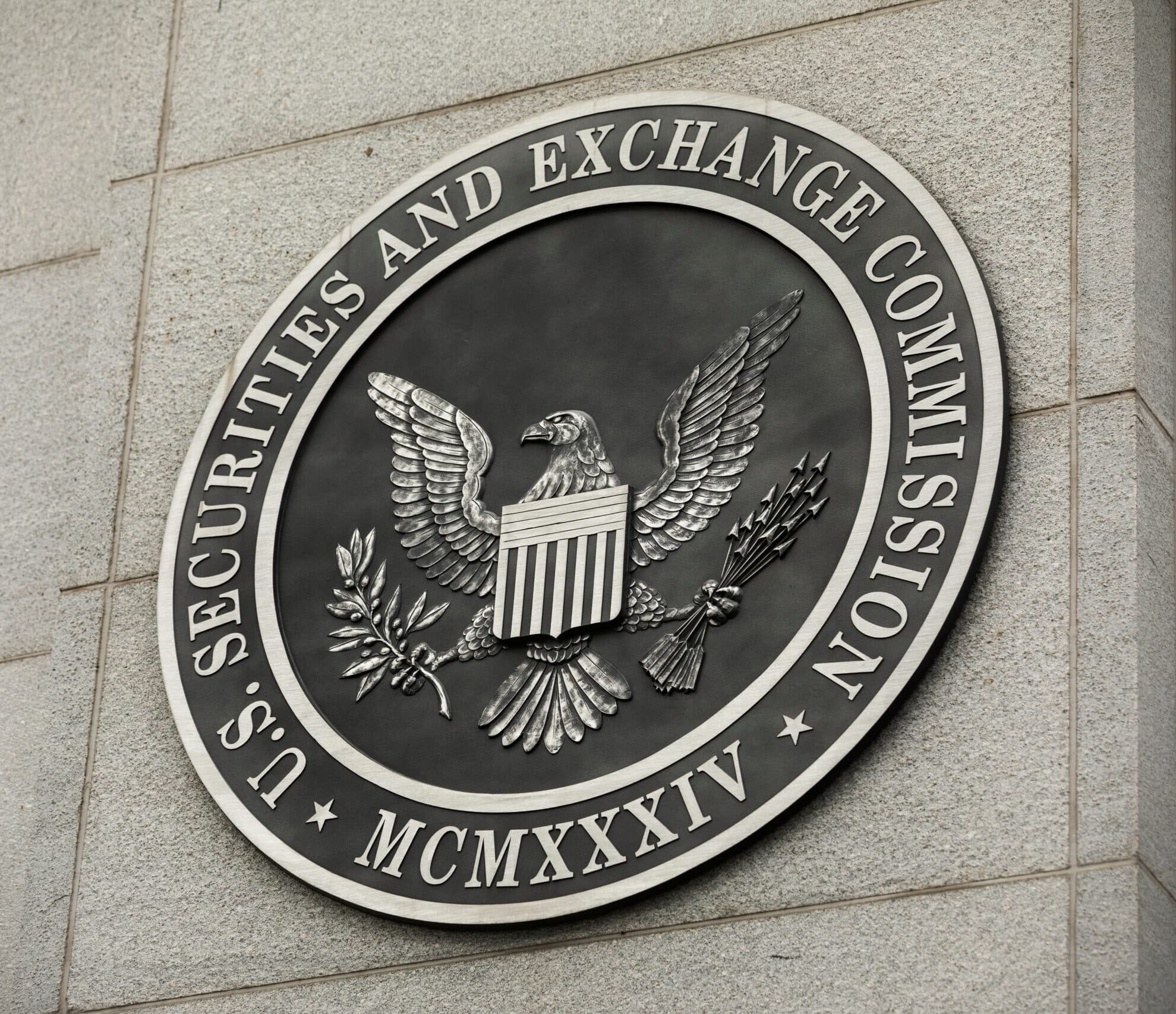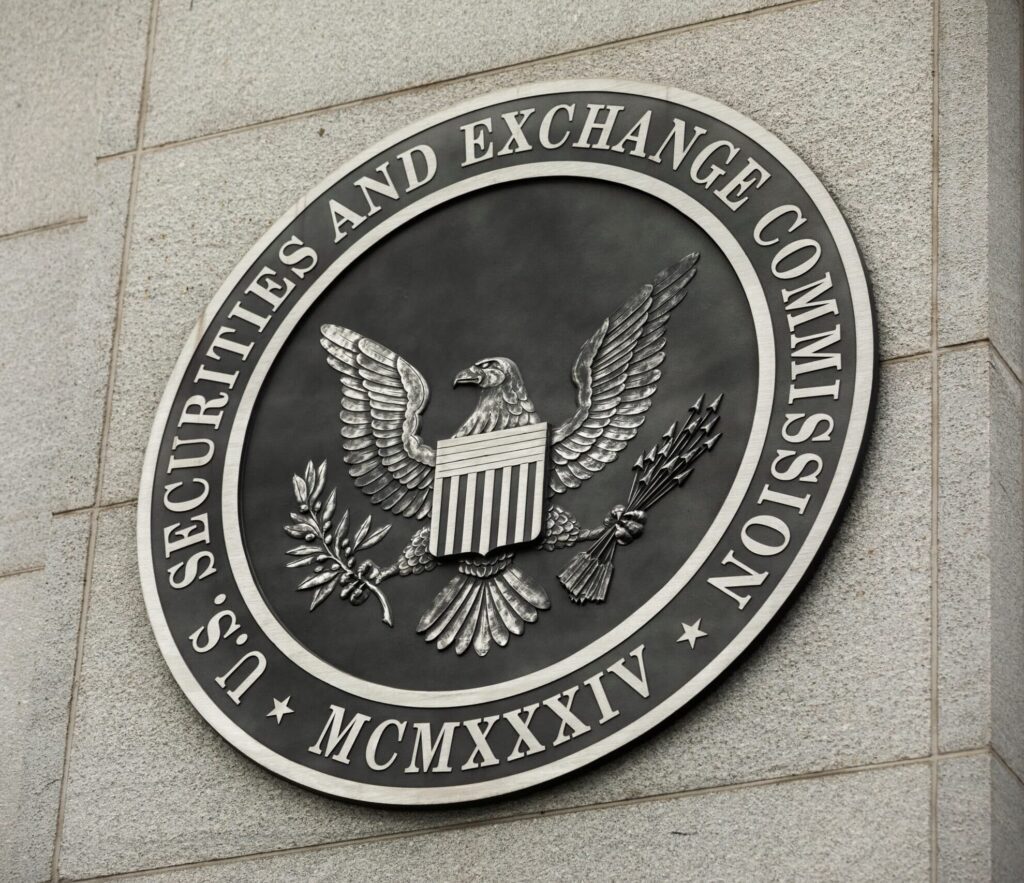Three industry advocacy groups, along with Coinbase and several crypto venture capital firms, also filed friend-of-the-court briefs, seizing the opportunity to combat SEC overreach as a whole.

The plaintiffs claim that the SEC’s numerous actions against crypto projects have created a de facto policy without going through the required steps.
(Shutterstock)
Posted October 28, 2024 at 6:11 PM EST.
The DeFi Education Fund (DEF) took a big turn against the SEC’s aggressive crypto regulation in a new brief filed in its lawsuit against the agency for airdrops last week, arguing that the SEC’s measures violate federal law. Four amicus briefs subsequently filed by other major crypto legal advocates, as well as Coinbase and several large crypto-VC funds, highlight that the suit is seen as an opportunity to curb what the DEF describes as a “regulatory aggression”.
“The SEC has decided that the vast majority of digital assets, which have long been considered not to be “securities,” are now securities” claimed the DEF and co-plaintiff Beba, a Texas-based clothing company, in their brief filed last week. “The (Administrative Procedure Act) required that SEC policy be subject to notice and comment and be within its statutory authority, but SEC policy did not do either.”
The Administrative Procedure Act (APA) covers the process by which the SEC, as well as other federal agencies, develop regulations. Because the SEC has prosecuted several individual companies distributing airdrops over the past three years, including Hydrogen Technology Corporation and various companies offering BitTorrent, without instituting a formal rule, DEF claims the agency is acting in violation of the APA. At the same time, the SEC asserts that its enforcement actions are covered by existing securities laws.
The lawsuit filed by the DeFi Education Fund and Beba against the SEC is a pre-enforcement action, meaning the plaintiffs are seeking court protection ahead of Beba’s planned airdrop of its $BEBA token. Recipients of the token receive discounts on store merchandise.
At this point in the lawsuit, the plaintiffs are responding to the SEC’s requests that the case be dismissed. The SEC had argued in court that it was being sued for a “phantom” policy that did not exist and that the plaintiffs had no legal standing.
First, on Friday, the nonprofit advocacy group Coin Center filed an amicus brief arguing that DEF does indeed have legal standing in this case. According to Coin Center, the DEF plays “a crucial role in representing the collective interests of these diffuse communities, providing resources, strategy and advocacy that individual developers could not muster on their own.”
Read more: First Congressional Hearing on DeFi Highlights Gap Between Republicans and Democrats
Next, a joint amicus brief filed Monday by the Blockchain Association and the Crypto Council for Innovation argued both that the DEF has the status of an advocacy organization representing the industry and that the SEC’s policy of “regulation by The application has created a compliance minefield for digital asset market participants that extends well beyond airdrops.
Crypto exchange Coinbase also filed an amicus brief on Monday, along with a chart. follow up what Coinbase claims are the SEC’s “conflicting statements” on digital assets. The brief also presents to the court Coinbase’s own experience dealing with SEC enforcement actions in several cases, arguing that the SEC flouted the “fundamental principle of the APA.” Later Monday, top crypto venture capital firms Variant Fund, a16z, Multicoin Capital, Paradigm and Union Square Ventures filed their own amicus brief in support of DEF and Beba.
The DEF, Coin Center, Blockchain Association, Crypto Council for Innovation, Coinbase, and venture capital firms all argue that the multitude of enforcement actions against crypto projects for violating securities laws that the SEC has already taken constitute sufficient history to assume that Beba would also be subject to coercive action by the agency. If the court agrees, that in itself would be a victory for the crypto industry.
Jake Chervinsky, Variant’s chief legal officer, noted that “the SEC has spent years waging a regulation-by-enforcement campaign against the crypto industry driven by legal interpretation that should have gone through notice and enforcement rules.” comments. This lawsuit is an excellent way to challenge the SEC’s illegal attacks on the industry.
The SEC is required to respond to DEF and Beba’s briefs by November 11, after which the court will decide whether to dismiss the case.
If the court does not dismiss the case, the proceedings will likely last several months before a final decision is made.
UPDATE (October 29 at 12:55 a.m. ET): Updated with the news that five crypto-VC firms had filed an amicus panel supporting DEF and Beba.




